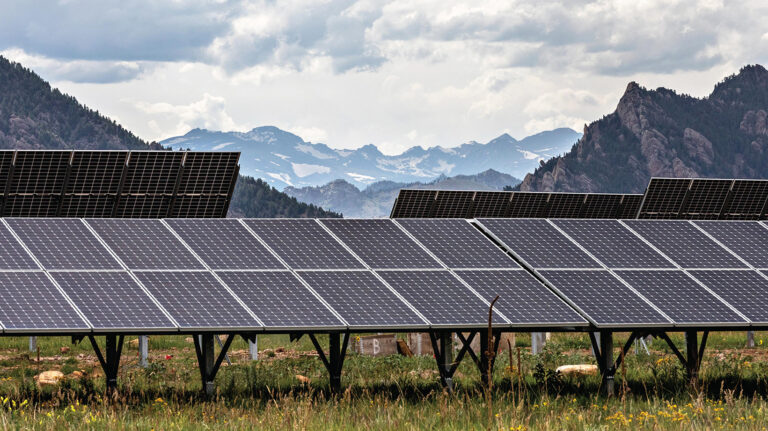The US government has released the Fifth National Climate Assessment (NCA5) report.
Mandated by the Global Change Research Act of 1990 and produced approximately every four years, the US National Climate Assessment provides scientific information about climate change risks, impacts and responses in the USA. Climate change is reportedly affecting agriculture, forests, rural communities, water and natural resources across the USA, and will continue to over the next century through changing temperatures, precipitation patterns, drought, flooding and increasingly more severe extreme events, such as wildfires.
The 32-chapter report drew from 500 authors and 250 contributors from every state and several US territories. NCA5 was reviewed by federal government experts, external experts and the public multiple times throughout its development.
The report provides stark data about climate change – current levels of greenhouse gases are unprecedented in the past 800,000 years – but it also offers some promising outcomes and opportunities. The research found that US emissions are down, while the economy and population have grown, and climate action has increased in every region since the last report four years ago. The potential benefits of climate action outlined in the report include clean energy jobs and improved air quality and health.
Extreme weather events like heatwaves, cold waves, heavy rain, drought, flooding and severe storms cost the nation nearly US$150bn a year, according to the assessment. Because of the increasing frequency and intensity of extreme events, along with the rising number and value of assets at risk, the USA now reportedly experiences a billion-dollar disaster every three weeks.
“Every state in the USA has experienced the impacts of climate change,” said Gillian Bowser, an associate professor of ecosystem science and sustainability at Colorado State University (CSU) and contributing author to the ecosystems chapter of the report. “As climate change transforms ecosystems, there are real, immediate and inequitable impacts on human health and well-being. These changes impact some populations in more dramatic ways than others, driving environmental justice crises associated with extreme environmental events.”
Bowser’s chapter describes how climate change is driving rapid ecosystem transformation and accelerating biodiversity loss and species changes. “We wanted to end on solutions, so the final message focuses on equity, environmental justice and nature-based solutions with strong examples and case studies of community engagement in solutions,” she said.
CSU is part of a national network that sponsored a youth dialogue last winter on the draft of the Fifth National Climate Assessment, or NCA5. Bowser said that environmental justice was the top concern among young people who participated in the conversation. “The youth want policymakers to work to prevent the environmental justice issues that arise from extreme environmental events from wildland fire, floods and heatwaves,” Bowser said.
“The National Climate Assessment is a coordinated effort to see, to the best of our ability, the full picture,” said Dominique David-Chavez, assistant professor of indigenous natural resource stewardship, forest and rangeland stewardship at CSU and contributing author to the tribes and indigenous peoples chapter. “Our process includes numerous opportunities for public comment. As co-authors, we review and address each one of these, so every person has a voice and opportunity in shaping this assessment.”
David-Chavez, who is a Caribbean indigenous community member and research scientist focused on climate resilience, worked with chapter co-authors to include indigenous peoples from more than 700 native nations and indigenous communities, including those from USA territories, which are often excluded from national reports.
“If climate change is not already directly impacting your family or community, you can be certain that it will be in the near future,” David-Chavez said. “As a mother of three young kids, I feel a deep sense of responsibility to ensure that our public, policy leaders and youth will have all the necessary data, tools and knowledge, including the indigenous science knowledge that we draw upon in our chapter, to face the challenges before us.”
According to the report, climate change is increasing the frequency and severity of wildfires, and wildfire smoke is additionally harming human health. “The whole country has been impacted by wildfire smoke in recent years,” said Jeff Pierce, a professor of atmospheric science at CSU and contributing author to the air quality chapter. “Earlier snowmelt and increased aridity with climate change could lead to further worsening of wildfire seasons.”
Nathan Mueller, an associate professor of ecosystem science and sustainability and soil and crop sciences at CSU, co-authored a chapter focused on the Northern Great Plains. He said, “Climate change responses involve navigating complex trade-offs, and it’s important to dig into the nuances of climate change in each region to understand these complexities. This knowledge is important for helping communities build the capacity to adapt and transform.”
Recent CSU graduate Sarah Whipple also contributed to the assessment while she was a PhD student in ecology. “While the assessment acknowledges inevitable change, it also highlights tangible success stories that should act as motivation toward future action,” Whipple said.
Read more of the latest climate measurement updates from the meteorological technology industry, here.



